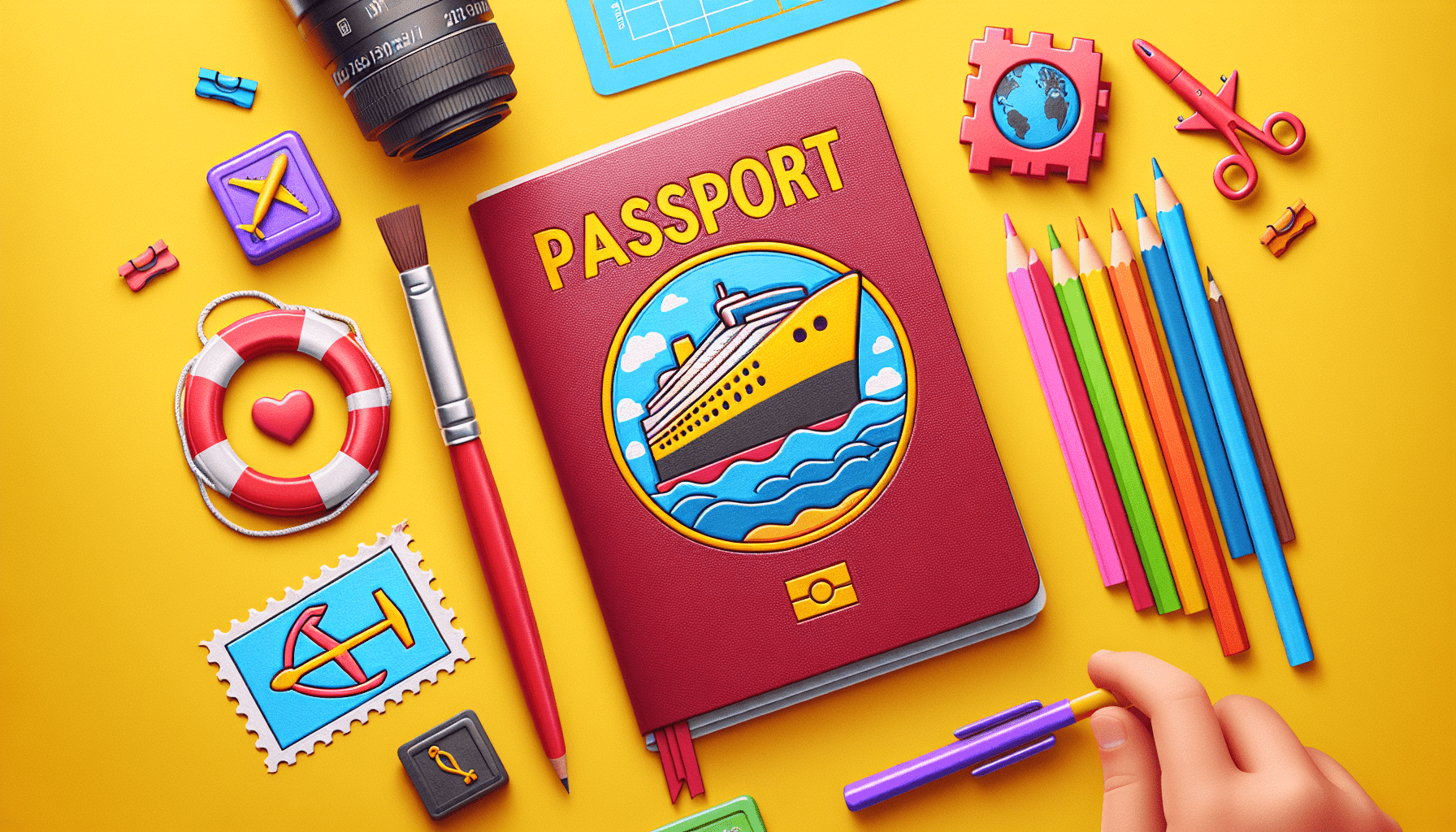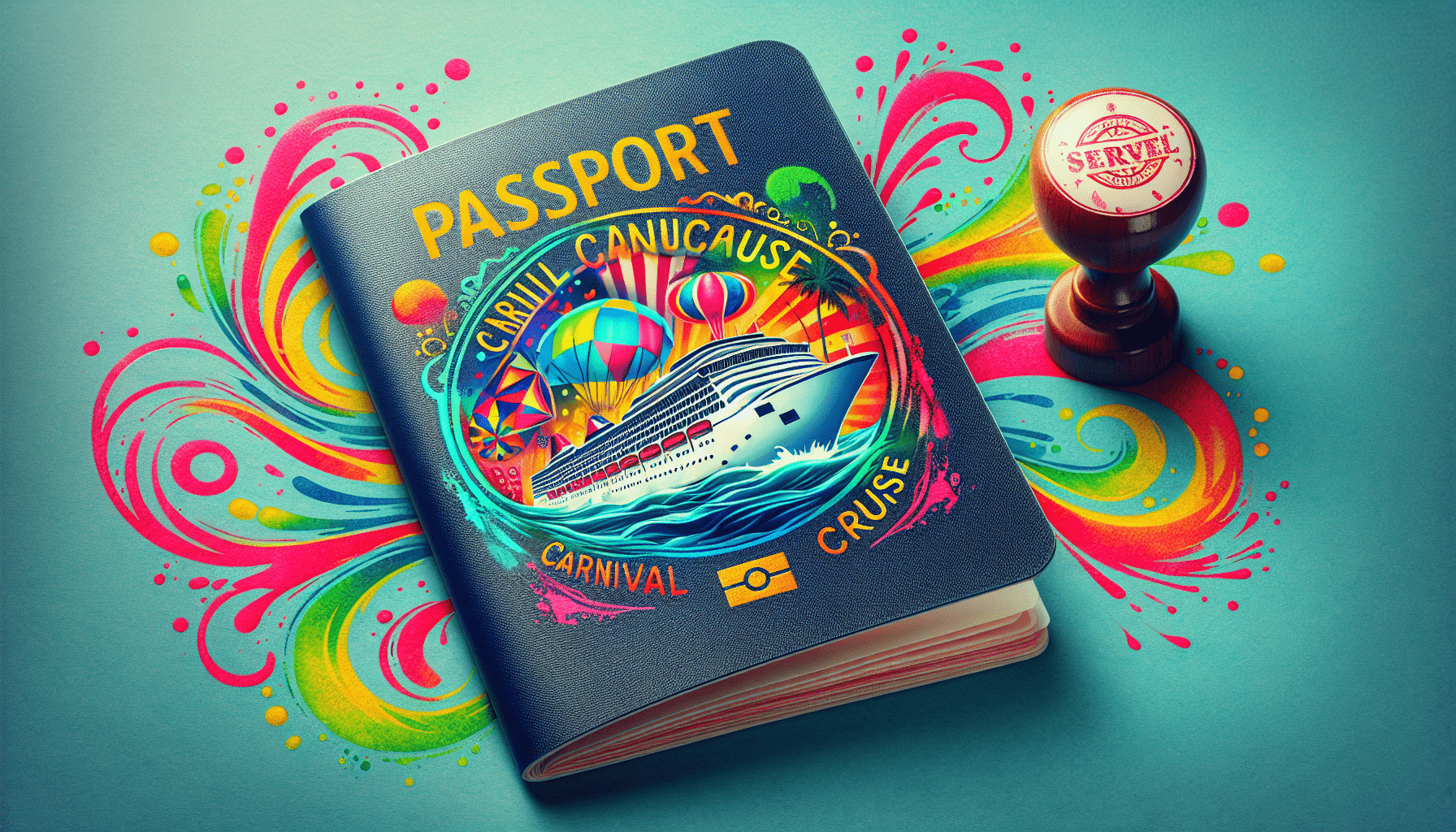
So, you’re planning a fun-filled family vacation on a Carnival Cruise. The excitement is building as you imagine all the adventures and memories that await. But before you set sail, it’s essential to ensure that you have all the necessary documents for your child to embark on this incredible journey. In this article, we will explore the requirements and documents needed for a child to go on a Carnival Cruise, so you can be fully prepared for a stress-free vacation at sea.
Passport
What is a passport?
A passport is an essential travel document that verifies your identity and citizenship, allowing you to travel internationally. It includes important information such as your full name, date of birth, nationality, and a photo of you. A passport serves as proof of your identity and is recognized by foreign governments as a valid travel document.
Why does a child need a passport?
Just like adults, children need passports when traveling internationally. A passport is required for them to enter and exit foreign countries. It serves as proof of their identity and citizenship, ensuring their safe travels. Without a passport, a child may be denied entry at immigration checkpoints, which can disrupt travel plans and cause unnecessary stress.
How to apply for a passport
To apply for a passport for your child, you will need to complete the necessary application forms and provide supporting documents. The forms can be obtained from your country’s passport office or embassy. You will typically need to fill out personal information about your child, including their name, date of birth, and parental information.
Supporting documents needed usually include:
- Proof of citizenship (such as a birth certificate)
- Proof of parental relationship (such as a birth certificate or court order)
- Parental consent (both parents must give permission for the child to have a passport)
Once you have the necessary documents, you can submit the application in person at a passport office or embassy. Some countries also allow online or mail-in applications. Be prepared to pay the passport fees, which vary depending on your location and the processing options you choose.
Passport fees and processing time
Passport fees for children are typically less than those for adults, but they can still vary significantly depending on your country of residence. Processing times also differ, with some countries offering expedited services for an additional fee. It is advisable to apply for a child’s passport well in advance of your travel dates to allow for any unexpected delays.
Passport expiration date and validity
It is important to note that passports for children have a shorter validity period compared to adult passports. In most cases, a child’s passport is valid for five years, while adult passports may be valid for ten years. It is crucial to check the expiration date of your child’s passport before planning any international travel. Many countries require that passports have a minimum of six months’ validity remaining upon entry, so be sure to renew your child’s passport if necessary.

Birth Certificate
What is a birth certificate?
A birth certificate is an official document that proves a child’s identity, citizenship, and date of birth. It is typically issued by the government or relevant authorities in the country of birth. The birth certificate includes relevant details such as the child’s full name, the names of their parents, and the place and date of birth.
Why does a child need a birth certificate?
A birth certificate is often required when applying for a child’s passport, as it serves as proof of their identity and parental relationship. It is an essential document that establishes the child’s citizenship and supports their eligibility for certain benefits and services. Additionally, a birth certificate may be necessary for enrollment in schools, acquiring a driver’s license, and other legal purposes.
Obtaining a birth certificate
The process of obtaining a birth certificate varies depending on the country or jurisdiction where the child was born. In many cases, the hospital where the child was born will assist in registering the birth and issuing the birth certificate. If not, parents can contact the appropriate government office responsible for birth registrations.
The required documents for obtaining a birth certificate may include:
- Proof of parental identity (such as government-issued IDs)
- Proof of marriage or parental relationship
- Hospital records or a birth notification form
Parents should check the specific requirements of their country or jurisdiction and follow the necessary procedures to obtain an official birth certificate for their child.
Certified copies vs. original certificates
When using a birth certificate for official purposes, it is important to know the difference between a certified copy and an original certificate. An original birth certificate is the official document issued at the time of birth. It is typically printed on special paper and bears an official seal or stamp.
A certified copy of a birth certificate is a duplicate that has been officially authorized by the relevant government authority. Certified copies are often required when applying for passports or other legal processes, as they are considered valid and equivalent to the original document.
It is advisable to obtain multiple certified copies of your child’s birth certificate, as some organizations or processes may require them. Keep the original birth certificate in a safe place and use the certified copies for any necessary applications or submissions.




